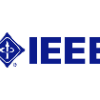Contention-based wireless channel access methods like CSMA and ALOHA paved the way for the rise of the Internet of Things in industrial applications (IIoT). However, to cope with increasing demands for reliability and throughput, several mostly TDMA-based protocols like IEEE 802.15.4 and its extensions were proposed. Nonetheless, many of these IIoT-protocols still require contention-based communication, e.g., for slot allocation and broadcast transmission. In many cases, subtle but hidden patterns characterize this secondary traffic. Present contention-based protocols are unaware of these hidden patterns and can therefore not exploit this information. Especially in dense networks, they often do not provide sufficient reliability for primary traffic, e.g., they are unable to allocate transmission slots in time. In this paper, we propose QMA, a contention-based multiple access scheme based on Q-learning, which dynamically adapts transmission times to avoid collisions by learning patterns in the contention-based traffic. QMA is designed to be resource-efficient and targets small embedded devices. We show that QMA solves the hidden node problem without the additional overhead of RTS / CTS messages and verify the behaviour of QMA in the FIT IoT-LAB testbed. Finally, QMA's scalability is studied by simulation, where it is used for GTS allocation in IEEE 802.15.4 DSME. Results show that QMA considerably increases reliability and throughput in comparison to CSMA/CA, especially in networks with a high load.
翻译:然而,许多基于内涵的无线频道接入方法,如CSMA和ALOHA等,为工业应用(IIOT)中各种事物的互联网的兴起铺平了道路。然而,为了应对对可靠性和吞吐量的日益增长的需求,提出了几大大多数以TDMA为基础的协议,如IEEE 802.15.4及其扩展。然而,许多基于IIOT-protocol等基于内涵的无争议的无线频道接入方法仍需要基于争议的通信,例如,用于空档分配和广播传输。在许多情况下,这种二次交通具有微妙但隐蔽的模式。目前的基于争议的协议对这些隐蔽的模式并不知情,因此无法利用这些信息。特别是在密集的网络中,这些协议往往无法为初级交通提供足够可靠的可靠性,例如,它们无法及时分配传输时间。在本文件中,我们提议,基于基于争议的多重接入计划,即动态地调整传输时间,以避免在基于争议的互联网交通中学习模式中发生碰撞。QMA设计为资源效率并针对小型嵌入装置。我们表明,QMA的隐藏的节点网络在主要节点的节点的节点问题,而无需通过高端的CTSA/QL的可靠性,在最后的CA测试中,而使IMA-MA的可靠性是用于间接的CL的CLA的卡根基数据。
相关内容
- Today (iOS and OS X): widgets for the Today view of Notification Center
- Share (iOS and OS X): post content to web services or share content with others
- Actions (iOS and OS X): app extensions to view or manipulate inside another app
- Photo Editing (iOS): edit a photo or video in Apple's Photos app with extensions from a third-party apps
- Finder Sync (OS X): remote file storage in the Finder with support for Finder content annotation
- Storage Provider (iOS): an interface between files inside an app and other apps on a user's device
- Custom Keyboard (iOS): system-wide alternative keyboards
Source: iOS 8 Extensions: Apple’s Plan for a Powerful App Ecosystem





